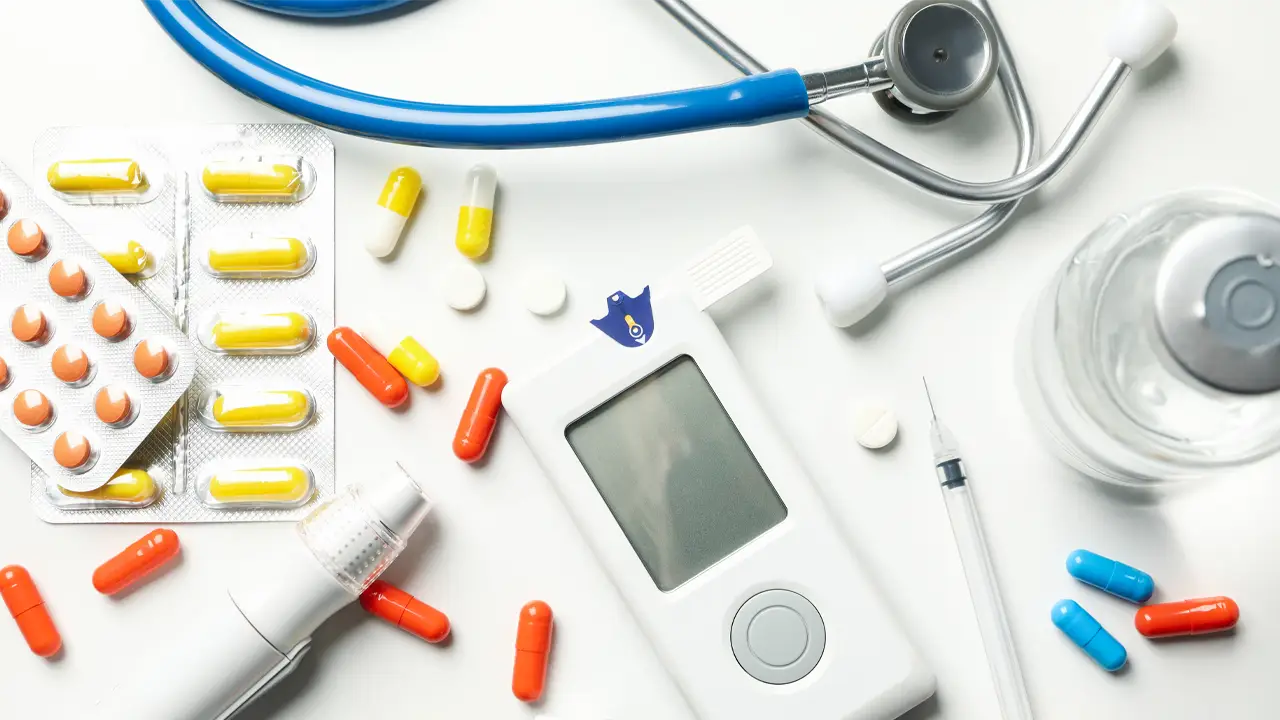Diabetes is a chronic health condition that affects millions of people around the world. While there is no cure for diabetes, effective management can help patients live well with the condition and reduce their risk of complications. Patient education is a critical component of diabetes care, as it empowers patients to take an active role in managing their diabetes and living a healthy lifestyle.
However, providing effective diabetes patient education can be challenging, particularly when working with diverse populations. To ensure that patient education materials are accessible and effective for all patients, it is essential to understand the unique needs and preferences of different populations.
Patient Education Materials for Diabetes Care
Patient education materials play a critical role in helping patients with diabetes understand their condition, manage their diabetes effectively, and make informed decisions about their health. Patient education materials can take many forms, including brochures, videos, websites, and other digital resources.
One key consideration when developing patient education materials for diabetes care is cultural and linguistic appropriateness. To ensure that patient education materials are accessible and effective for diverse populations, it is important to consider factors such as language, literacy level, cultural values, and health beliefs. For example, patients from certain cultural backgrounds may have different perceptions of diabetes and its treatment, which can impact their willingness to engage in self-care practices.
Another important consideration when creating patient education materials for diabetes care is the use of plain language and visual aids. Studies show that many patients with diabetes have low health literacy, which can make it difficult for them to understand complex medical concepts. Using plain language and visual aids, such as illustrations and diagrams, can help patients better understand important information about their diabetes and how to manage it effectively.
Finally, patient education materials for diabetes care should be designed to promote patient engagement and self-efficacy. Studies show that patients with diabetes who feel empowered to manage their condition are more likely to engage in self-care practices and achieve better health outcomes. Patient education materials can be designed to promote self-efficacy by emphasizing the importance of self-care practices and providing practical tips and strategies for managing diabetes.
Diabetes Care and Education Specialist
Diabetes care and education specialists are healthcare professionals who specialize in providing education and support to patients with diabetes. These specialists work collaboratively with patients and their healthcare teams to develop personalized diabetes care plans, promote self-management and adherence to treatment, and help patients achieve their health goals.
To become a diabetes care and education specialist, healthcare professionals typically complete advanced training and certification in diabetes education. These specialists may work in a variety of settings, including hospitals, clinics, community health centers, and private practices. They may also work as part of a diabetes care team, which may include physicians, nurses, dietitians, and other healthcare professionals.
One key role of diabetes care and education specialists is to provide comprehensive education and support to patients with diabetes. This may include teaching patients about the basics of diabetes management, such as blood glucose monitoring, medication management, and lifestyle modifications. Diabetes care and education specialists may also provide more specialized education and support to patients with specific needs, such as those who are newly diagnosed with diabetes, those who are pregnant with diabetes, or those who are at risk of developing complications.
In addition to providing patient education and support, diabetes care and education specialists also play a critical role in improving the quality of diabetes care. These specialists may work with healthcare organizations and policymakers to develop and implement evidence-based guidelines for diabetes care, promote the use of diabetes self-management education, and advocate for policies and programs that support diabetes prevention and management.
Self-Care and Diabetes Management
Self-care is an essential component of diabetes management. Patients with diabetes must take an active role in their care to achieve optimal health outcomes. Self-care includes monitoring blood glucose levels, taking medications as prescribed, making healthy food choices, engaging in physical activity, and managing stress.
Effective diabetes self-care requires patients to have a good understanding of their condition and the skills needed to manage it. Diabetes care and education specialists can help patients develop these skills through individualized education and support. Patients can also access a variety of resources to support their self-care, such as educational materials, support groups, and online resources.
In addition to self-care, patients with diabetes must also work closely with their healthcare team to manage their condition. This may include regular check-ups with a primary care provider or endocrinologist, as well as regular monitoring of blood glucose levels and other health markers. Patients may also work with other healthcare professionals, such as dietitians or diabetes nurse educators, to develop personalized diabetes care plans.
Patient Education for Managing Diabetes Complications
Diabetes can lead to a variety of complications, including nerve damage, kidney disease, cardiovascular disease, and eye disease. Effective diabetes management includes not only controlling blood glucose levels but also addressing these potential complications.
Patient education is an essential component of managing diabetes complications. Patients need to understand the signs and symptoms of potential complications, as well as the steps they can take to prevent or manage them. This education may include information on healthy lifestyle choices, such as maintaining a healthy weight, engaging in regular physical activity, and making healthy food choices.
In addition to lifestyle modifications, patients may also need to take medications or undergo medical procedures to manage their complications. Patient education can help patients understand the benefits and risks of these interventions and how they can fit into a comprehensive diabetes management plan.
Patients with diabetes may also benefit from support groups or counseling to manage the emotional impact of potential complications. Effective patient education should include not only the physical aspects of managing complications but also the emotional and social aspects.
Tools and Resources for Diabetes Patient Education
Effective patient education for diabetes requires a variety of tools and resources. Patients need access to accurate, up-to-date information about their condition, as well as support and guidance from healthcare professionals and peers.
One key resource for diabetes patient education is the American Diabetes Association (ADA). The ADA offers a variety of educational materials, including brochures, handouts, and online resources. These materials cover a wide range of topics, from healthy eating to managing complications, and are designed to meet the needs of diverse patient populations.
In addition to the ADA, there are many other organizations that provide educational resources for patients with diabetes. These may include local hospitals or clinics, community health centers, or online resources such as blogs or social media groups.
Another important tool for diabetes patient education is remote patient monitoring (RPM) technology. By using this technology, patients can monitor their blood glucose levels, receive timely reminders for medications, and track their progress towards health goals. RPM also allows healthcare providers to monitor patient data in real-time and provide timely intervention when necessary, leading to better outcomes and improved patient education. With the use of RPM technology, patients can better manage their diabetes and improve their overall quality of life.
Finally, peer support is an essential component of diabetes patient education. Patients can benefit from connecting with others who have similar experiences and challenges. This may include support groups, online forums, or other social networks.
DrKumo Remote Patient Monitoring for Promoting Diabetes Education
RPM has the potential to greatly improve patient education, particularly for those with chronic conditions like diabetes. By providing continuous real-time monitoring, RPM allows healthcare providers to gather data and track patients’ progress, which can help identify areas where patients may need additional education or support. RPM can also enable patients to take a more active role in managing their own health by providing them with real-time feedback on their health status and progress.
DrKumo RPM technology is designed specifically to support patient education and self-management for chronic conditions like diabetes. With its state-of-the-art monitoring capabilities and AI/ML engine, DrKumo platform provides patients with real-time feedback and support, helping them to stay on track with their treatment plans and better manage their condition. DrKumo solution is user-friendly and mobile-enabled, making it easy for patients to access and use from the comfort of their own homes. By leveraging the power of RPM technology, DrKumo is helping to revolutionize patient education and chronic disease management, providing patients with the tools and resources they need to take control of their own health.
Takeaways
Effective patient education is essential for managing diabetes and its complications. By providing patients with the knowledge, skills, and resources they need to manage their condition, healthcare professionals can help patients achieve better health outcomes and improve their quality of life. Through ongoing education and support, patients can learn to manage their diabetes effectively and live well with this chronic condition.
Take advantage of RPM technology to enhance diabetes patient education and improve disease management in the comfort of your patients’ homes. Contact DrKumo now.








